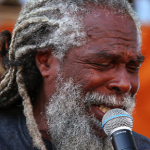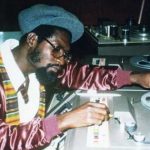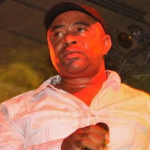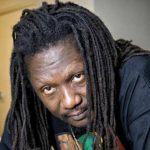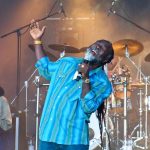Peter Tosh
The Revolutionary Reggae Legend: Peter Tosh
Peter Tosh, born Winston Hubert McIntosh on October 19, 1944, in Westmoreland, Jamaica, is a name synonymous with reggae music and revolutionary spirit. A pivotal figure in the genre’s global rise, Tosh’s work as a musician and activist has left an enduring legacy that continues to inspire new generations. Known for his baritone voice and distinctive guitar skills, Peter Tosh remains a legendary icon in the world of reggae.
Early Life and Musical Beginnings
Born to a deeply religious mother, Peter Tosh’s early years were steeped in Christian values. His involvement with the church choir and organ lessons set the stage for his lifelong musical journey. At the age of 16, Tosh relocated to Trench Town, Kingston. This vibrant yet challenging environment, known for its rich musical culture, became the crucible for his artistic ambitions. Here, he was exposed to R&B and doo-wop, fueling his passion for music.
Peter Tosh Formation of The Wailers
In the bustling streets of Trench Town, Peter Tosh formed a bond with Bob Marley and Neville “Bunny” Livingstone. This friendship birthed the legendary group, The Wailers. Their debut hit “Simmer Down,” released in 1964, was a sensational blend of American soul, gospel, and reggae. As the political climate of the 1960s intensified, The Wailers infused their music with socially conscious lyrics, echoing the teachings of Rastafari and addressing issues of inequality and injustice.
Tosh’s Multifaceted Role
As The Wailers’ most accomplished musician, Peter Tosh played a pivotal role in shaping the band’s sound. He was proficient in guitar, keyboards, and percussion, and his songwriting introduced a militant perspective that complemented Marley’s more soothing tones. This dynamic enriched their music, making it both thought-provoking and universally appealing. Together, they pioneered the distinctive rhythm of reggae, slowing down the tempo of ska and rocksteady.
A Solo Career and International Acclaim
In 1976, Peter Tosh embarked on a solo career with the release of his debut album “Legalize It” under CBS Records. The title track became an anthem for marijuana legalization and resonated with reggae enthusiasts and Rastafarians worldwide. This bold stance solidified his position as a formidable solo artist. Tosh’s subsequent albums, including “Equal Rights” (1977) and “Bush Doctor” (1978), featured collaborations with Mick Jagger and Keith Richards, broadening his international audience.
Word, Sound, and Power
To support his solo endeavors, Tosh formed a backing band, Word, Sound, and Power. This collaboration further elevated his concerts and studio recordings, introducing his revolutionary messages to a wider audience and cementing his status as an international reggae icon.
An Advocate for Social Justice
Peter Tosh’s work was a clarion call for freedom and justice. His music was a tool for revolution, famously symbolized by his guitar shaped like an M16 rifle. Despite facing persecution, including beatings and imprisonment by Jamaican authorities, Tosh remained steadfast in his convictions. His resilience and unwavering commitment to his beliefs left an indelible mark on the world, championing the fight against injustice.
Legacy and Influence
Beyond his activism, Tosh’s charisma and unique style endeared him to fans across the globe. An accomplished unicyclist, he often delighted audiences by riding onstage, adding a special flair to his performances. His legacy continues to inspire musicians and activists alike, cementing his place as a revolutionary figure in reggae music and beyond.
Peter Tosh’s life story is a testament to the power of music as a force for change. His contributions to reggae and his enduring impact on global culture remain a beacon for those who seek to challenge the status quo and advocate for a more just world.




